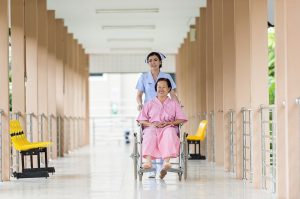Guest Blog: Choose Your Laptop For Music Production

Musicians use laptops in different ways. Many employ a traditional approach, recording tracks from microphones and instruments and then mixing them to create the final product. Hip-hop, pop and electronic musicians often use the laptop to produce most of the real sounds – programming the sounds in a sequencer or playing them on a MIDI keyboard or touchpads connected to the laptop. But they still record vocals and other sounds using microphones and mix them with computer-generated audio and often with footage from other artists’ recordings. DJs usually do all of the above and also use the top music production laptops as a presentation device, often triggering everything with a controller that has touchpads and some scratch-like platters. Get more ideas about choosing the best laptops for your music production here Music Production Laptop Reviews.
All of these applications use software packages called digital audio workstations or DAWs. Some DAWs are more focused on recordings, others more for the generation of music in the laptop itself. Here is an excellent guide to selecting a DAW.
The folk singer / songwriter who wants to take her laptop with her on the subway to record concerts in Brooklyn has different needs from the producer who wants to bring hip hop hits to the studio set up in her home in Atlanta. So the first step should be to decide what your job requires. Is portability important? Will your productions be simple or complex? Will your laptop be used in a live music presentation?
Screen size
The screen is important because it determines the size of your visual workspace. The more complex your productions are, the more work space you need. Almost any laptop screen will allow you to monitor 6 to 10 music tracks comfortably, but it is almost impossible to manage 30 tracks on a small screen.
• Smaller screens (10-13 inches diagonally) can be accommodated easily in backpacks. For recordings and basic mixes, a small monitor is fine.
• Mid-size laptops (14-16 inches) typically represent the balance between portability and performance.
• Large laptops (17-18 inches) are great for music producers who need to monitor dozens of tracks at once, which is the norm in hip-hop, pop and electronic music.
Mobility
If you plan to use your laptop for recordings or live performances, a smaller model is in gral a better option because it is easier to load and takes up less space on the stage. Another consideration in these applications is battery life. It is not important in homes or clubs where there is a nearby outlet, but it can be critical for mobile recording. Also, if you plan to use your laptop for a presentation or recording in clubs, it’s a good idea to choose a model with a backlit keyboard.
Mac or Windows?
MacBooks are fast and reliable, although there are equally powerful Windows laptops, usually for more affordable prices. This choice depends primarily on two factors: your budget and the software you prefer to use. Note that professional music studios tend to use Macs, so if you plan to work alongside professional studios – recording a few tracks in a large room or hiring a professional to mix your recording – a Mac may be a safer option, though audio files from Windows machines can be transferred to the Mac operating system and vice versa.
Processor
Music production can put a heavy load on a CPU or processor, which is the heart of any computer. Get the best and most powerful processor within your budget because it can rarely be updated later. The more complicated your productions, the more important the CPU. Mixing a song with 30 tracks, multiple instruments and many digital audio effects requires a powerful computer.
There are two measures of processor performance to keep in mind. One is the number of cores. Each core can process data independently, so the addition of cores dramatically increases processing power. A quad-core processor is the best choice for music production. The other measure is the clock speed, which generally ranges from 2.4 to 4.2 GHz. The faster, the better.
In general, a more compact laptop will have a less powerful processor, but this is not always true.
RAM
RAM, or random access memory, temporarily stores programs and data when your computer is on. The more complex the program, the more RAM it requires.
For music production you need at least 8 GB and preferably 16 GB of RAM, especially if you are working with many recorded tracks and / or virtual instruments, or employing multiple effects on your tracks. Fortunately, RAM is one of the easiest components to upgrade on a computer, but every laptop has its limits. It is best to choose one that can accommodate at least 16 GB of RAM.
Storage: HDD or SSD?
Audio files spend a lot of storage space: only a complicated song can easily occupy 1 GB. That’s why it’s a good idea to have at least 1TB of storage space available.
How this storage is organized is another matter. Its options are a conventional hard disk (HDD), which uses one or more internal rotating disks, a solid state drive (SSD) without moving parts or an external HDD, which connects to your laptop via USB.
An SSD is able to read and write data much faster than an HDD and is quieter and more reliable. However, the price of an SSD is usually five times higher per GB than that of an HDD. One solution, if your laptop allows, is to have a 128GB or 256GB SSD and a 1TB HDD. That way, bootstrapping and loading programs from the SSD are ultrafast and you have plenty of storage space for music files on the HDD.
Another solution is to save your music files – or at least archived ones – to an external hard drive. This method increases complexity, but lets you add more storage space when you need it, and lets you opt for a smaller, thinner computer.
Doors
To interface a laptop with microphones, instruments, and other audio devices, you will need an audio interface that will connect to the laptop through a USB port. If you’re producing music directly from your laptop, you’ll also use USB to connect to a keyboard, MIDI pads (to play beats), and DJ controllers. Many music professionals like to use control surfaces, which offer a very similar physical interface to a mixing desk, instead of using the mouse to control their recordings and audio mixes.
laptops come with at least two USB ports, but obviously you may want more, especially if you want to connect peripherals such as a wired keyboard or mouse or an external hard drive. The USB ports of any computer can be extended by connecting a USB hub, but for the portable users, this will be another device to charge.
Connectors for Speakers / Headphones
Surprisingly, these features do not matter much in a laptop used for music production. The laptop-integrated speakers are very low-quality devices, which are only there in case you do not have anything else to listen to. Nothing will sound good through them, and if you try to adjust your mixes to sound good for them, the song will probably sound strange when played on good-quality speakers. You can use the headphone connector integrated into the laptop, however, in most laptops. the amplifier connected to the headphone connector has poor quality and can take some of the sound out of your headphone.
Fortunately, most audio interfaces have headphone connectors as well as connections that allow you to attach a set of high quality monitor speakers that will allow you to mix with high quality sound. Why is not it crazy to invest hours in choosing the right laptop and hundreds of hours in producing a piece of music and then listening to it on low-quality speakers?
Final tracks
Once you have chosen the laptop, audio interface and DAW software that are best for your needs, you are ready to create studio-quality music productions. In fact, most of the songs you hear on the radio are created using nothing more than that. You just need to add your own creativity and imagination.
Guest Blog: The Exact Web Design Formula for Senior Care Sites
As a senior care provider, you need a website that connects you to your audience and positions you as an authority. First, you need to understand who your audience is. Most likely, it’s the friends and family of loved ones who are in need of senior care in some form or another.
They’re in need of support and understanding in this time of need. They might be looking for information or simply for an idea of what to expect during their search. Either way, you need a website designed for success if you want to convert these visitors into customers or patients.
Homepage
Homepage is your first impression to your customer, so take this moment to highlight the value you offer your patients. Many health facilities make the mistake of putting too many SEO keywords on their homepage, and overwhelming users with content. Most new users will only spend up to 15 seconds on a website before they decide to go elsewhere. You’ll need to include these things to keep customers focused and interested:
● Descriptive value – First, make sure you identify who you are, what you do, and the value you provide. This should be focused on the patients.
● Call to action – What action do you want your users to take first? Include your CTA above the fold, or near the top of the page. You might ask them to sign up for your email list, visit your blog, or just see your services.
● Unique proposition – How are you different than other facilities? Make sure this is clear right off the bat.
Easy Navigation
Besides focusing on keeping your homepage straightforward, you also need an easy to use navigation. Avoid going overboard with menu items. Less usually is more.
One of the best tips from Lead to Conversion, a leading design business, is to use a traditional layout. There’s a lot of temptation to go with something artsy and unique, but realize that users have expectations when they visit a website. Sticking to these expectations will help lead them through that important funnel. Keep these things in mind with your navigation:
● Limit menu items – Keep your menu items limited to the most important pages.
● Consolidated mobile menu – Ensure your menu appears correctly even on mobile devices.
● Alphabetical – Finally, make sure your pages are listed alphabetically if you use drop-down menus since this makes it easier to find what you’re looking for.
Much of web design is trial and error. When it comes to creating senior care websites, you need to know what your users want. The better you understand this as well as how people interact with web pages, the simpler the process becomes.
Update: Nursing Education in China and the UK
Thanks to Selina, owner of CareLink Technologies in Beijing, for meeting with Team IRC regarding nursing/rehabilitation education in China. Her team spent a week in the US and enjoyed the Denver area. They were able to sight see a little, mixing business with pleasure.
Team IRC will be in the UK, specifically London and Scotland, at the end of May to collaborate with our partners in the UK.
Guest Blog: What Colorado Residents Need to Know About Medicare in Their State
Despite impacting millions of people across the country, not many Americans are familiar with how the Medicare system functions.
Medicare even varies within each of the fifty states, making it more difficult to completely understand. In order to ensure that each citizen is getting their maximum benefits from this program, it is important that people become educated on the topic.
The more that people know about Medicare, the more they benefit. Here are some things that residents need to know about Medicare in Colorado.
Colorado Medicare Options
Medicare benefits are divided into different categories in Colorado. Residents can apply for Part A, B, D and supplement plans.
Medicare Part A covers care taking place in a hospital, and Part B focuses primarily on physician care. Colorado even has some Advantage Plans that are offered by private insurance companies.
Part D provides prescription medicine coverage for those already enrolled in Parts A and B. Part D is provided through some private insurance companies previously approved by Medicare.
Applying for Medicare
The process of applying for Medicare is the same in Colorado as all other states. To be eligible, an individual must be either a citizen of the United States or have held permanent residency for at least five years.
All individuals over the age of 65 are allowed to apply for Medicare coverage. Medicare in Colorado also covers those with disabilities who are under age 65.
Medicare Deductibles
Each Medicare Plan does have deductible costs to consider. Plan A has a deductible of $1,340 for each of the benefit periods. Medicare Plan B has a lower deductible of $183.
After paying the deductible, Plan B recipients are responsible for covering 20% of any amount approved by Medicare. Colorado charges a $405 yearly deductible for the Plan D Prescription Plan.
Medicare Supplement Plans (Medigap)
The Original Medicare plan still leaves a lot to be covered by an individual. Deductibles can quickly add up even with all the benefits provided by Medicare. This is why Colorado offers some Medicare Supplement Plans like Medigap.
Medigap works similar to Medicare, but it works to cover all of the costs that Medicare doesn’t. Out of pocket expenses such as coinsurance, copayments and deductibles are all covered by a Medigap plan.
These plans are offered through private insurance companies, similar to some Medicare Supplement Plans.
What Is Involved in a Radiographer’s Career
Are you thinking about a career in radiography? If yes, then this article will prove to be very meaningful to you. Let me just tell you, a career in radiography is a great choice for you if you like helping other people and paying close attention to details. Moreover, if you like performing an important role in a medical emergency, then there’s nothing better than becoming a radiologic technologist.
This article will brief you about what a typical career of a radiographer comprises. For more important details regarding how to become a radiographer, you can log on to insideradiology.com.au.
1- What Is a Radiographer Trained to Do?
One of the benefits that radiographers get from their profession is that they are trained to operate some of the most cutting-edge medical equipment. As a radiographer, you get the chance of being right in the middle of a medical case, working closely with patients and doctors. If you’re pursuing a career in radiography, then you would be trained to perform several diagnostic procedures, like X-rays, fluoroscopy, MRI, CT, and angiography.
2- How Is Radiographer’s Career Important?
A doctor cannot perform an invasive procedure even if it’s an emergency case without having the results of diagnostic tests performed by a radiographer. Radiographers are also responsible for setting radiation equipment accurately and ensuring that all test results are recorded correctly.
3- What Makes a Radiographer’s Career Interesting?
If you’re thinking of becoming a radiographer, then you won’t spend your day doing the same work. You’ll be performing various tests and using different kinds of modern technical devices. Following is what makes a radiographer’s career so interesting:
• Dealing with patients and briefing them about the procedure
• Guiding patients to form correct positions for the tests.
• Operating all the test equipment
• Recording the test results
• Working with doctors and interpreting the results
4- The Directions in Which a Radiographer’s Career Can Go
The best thing about becoming a radiographer is that you don’t have to stick to medical insinuations and hospitals throughout your career. Although most radiographers prefer to work in hospitals, you can steer your career in other directions as well. You can work with scientists and perform radiography on fossil bones to examine them. You can work with engineers to diagnose flaws in mechanical designs. You also have the option to work in mobile imaging services, military, breast imaging centre, and veterinary care practice.
5- The Demand for Radiographers
Radiographers in Australia enjoy a sound career and handsome salary. Moreover, radiography is a steadily growing job market that is expected to flourish further during the years to come. A general radiographer in Australia can easily make $65,000 to $75,000 annually and a CT radiographer can earn around $70,000 to $90,000 annually. The pay scale for MRI radiographers is even better.
So, what have you decided? Does a career in radiography sound interesting to you? Whether you work closely with patients and doctors or help a scientist examine fossils and mummies, a career in radiography sure gives you the feeling that you’re making the world a better place.




